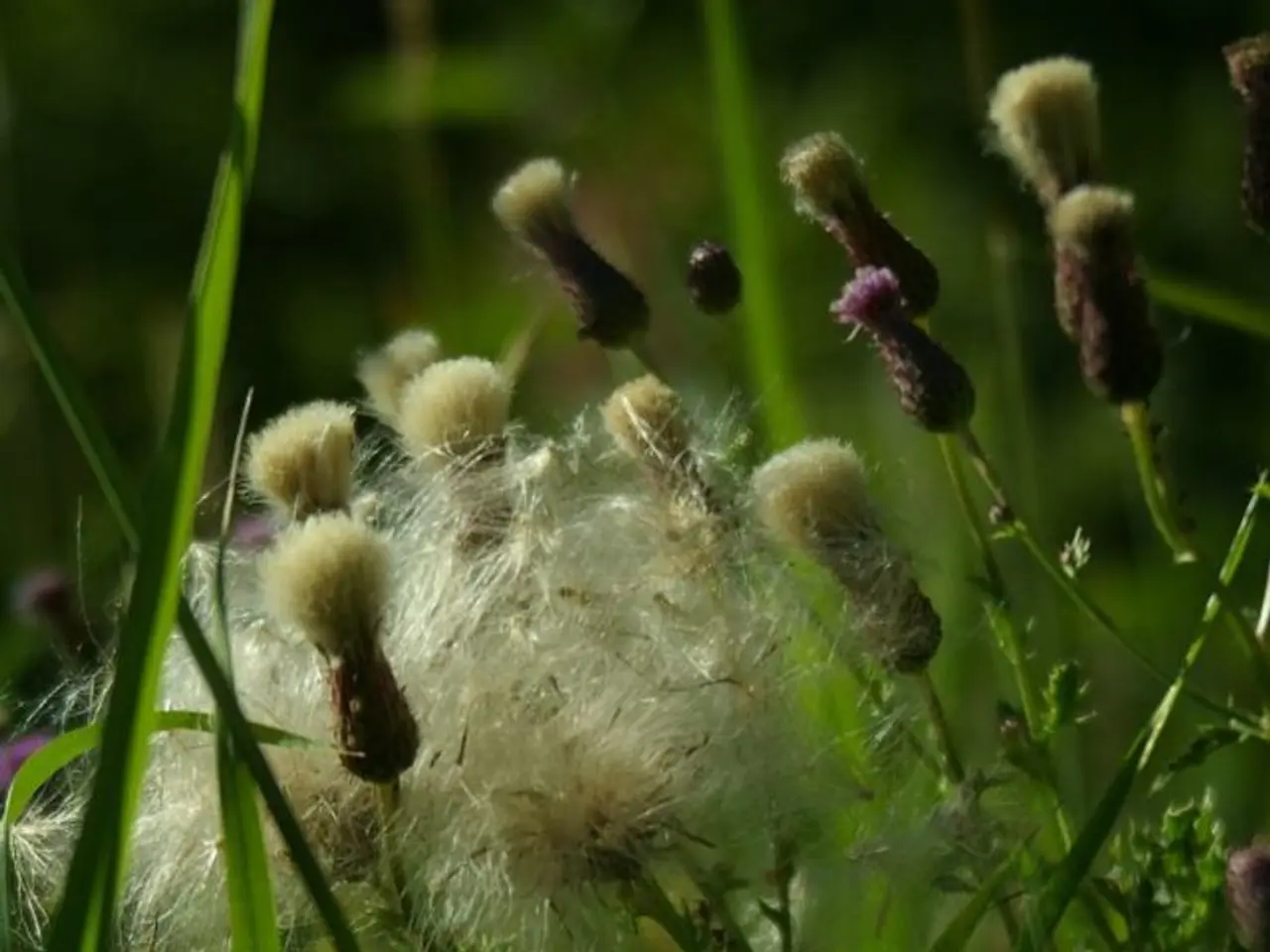Recycling Grass: The Simplest Method for Lawn Encouragement
Published on June 15, 2019, by Greg Seaman
In the pursuit of a lush, green lawn that requires minimal effort, homeowners are increasingly turning to microclover and a range of organic products. These innovative solutions not only offer practical lawn care advantages but also boast ecological benefits, making them an attractive choice for those seeking a sustainable, low-maintenance, and pollinator-friendly lawn option.
Microclover, a smaller, finer version of traditional white clover, stands out for its ability to blend well with grass, requiring less watering and mowing than conventional grass lawns. Its smaller leaves, fewer flowers, and lower growth habit create a lush, green lawn that is both aesthetically pleasing and easy to maintain.
One of the most significant advantages of microclover is its natural nitrogen-fixing property, which enriches soil fertility and reduces the need for synthetic fertilizers. This eco-friendly feature not only saves resources but also supports pollinators like bees and butterflies due to its seasonal blooms, increasing habitat value and ecological benefits.
To establish or overseed a lawn with microclover, it's recommended to use microclover seed similarly to grass seed. Mowing lawns with microclover at a taller height (around 3–4 inches) and regularly to shade out competing weeds like other clovers helps maintain turf dominance. Avoiding frequent scalping of the lawn further supports microclover's growth, as taller grass helps the plant thrive and reduces weed encroachment.
Incorporating organic compost and slow-release organic fertilizers, such as alfalfa meal, into the soil improves its nutrient content, especially nitrogen, for an optimal growing environment. Soil testing can help tailor nutrient amendments to deficiencies, supporting the long-term health of lawns with microclover.
In addition to microclover seed, various shops offer a range of products suitable for creating a low-maintenance, eco-friendly lawn. These include MicroLawn Grass Seed & Microclover Blend, a combination of microclover and grass seeds, and Wildflower Farms Eco-Lawn Grass Seed, a blend of grass and wildflower seeds.
The Organic Turf Starter Fertilizer and Organic Concentrated Compost further enhance the soil's structure and nutrient content, promoting healthy growth for both microclover and grass. These products are effective in reducing the need for chemical fertilizers and pesticides, making them a sustainable choice for lawn care.
Available in sizes of 1 lb, 5 lbs, and 50 lbs, these products cater to various lawn sizes and needs. Homeowners can choose the size that best suits their lawn, ensuring a sustainable and eco-friendly solution for their lawn care needs.
In conclusion, embracing microclover and organic products offers a practical and sustainable approach to lawn care. By choosing these solutions, homeowners can enjoy a low-maintenance, eco-friendly lawn that supports pollinators and reduces resource consumption, all while maintaining a lush, green, and aesthetically pleasing space.
Embracing microclover as part of a home-and-garden lifestyle, homeowners can transition their lawn into a sustainable living space. By using microclover seed and organic products like MicroLawn Grass Seed & Microclover Blend, home-and-garden enthusiasts can cultivate a low-maintenance lawn that thrives with minimal watering and mowing, promoting ecological benefits and supporting pollinators.





